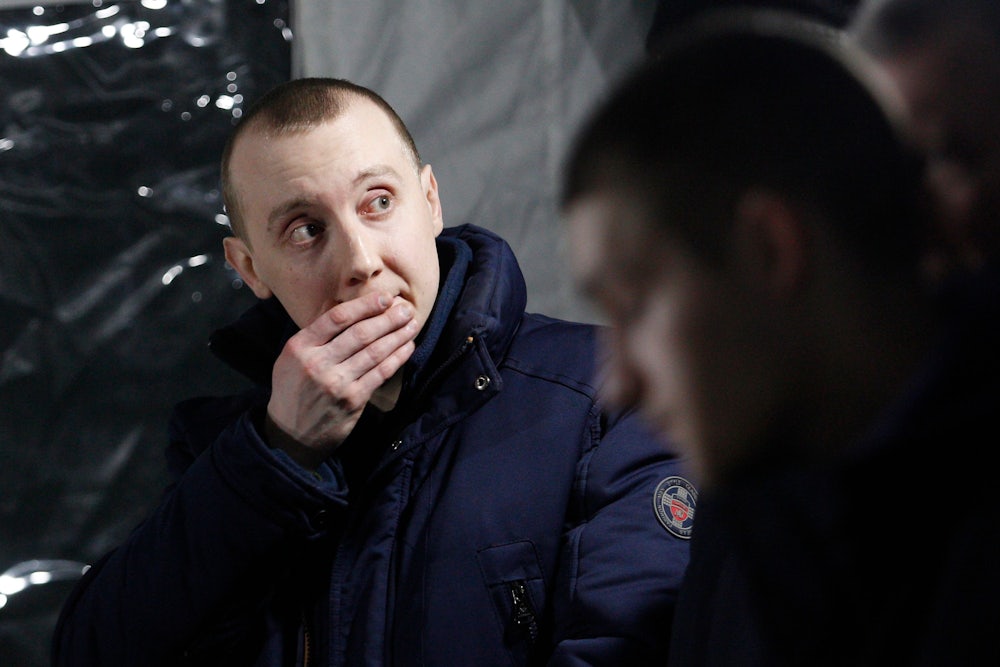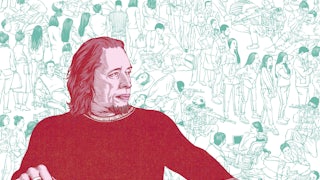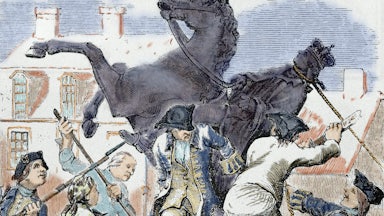On June 2, 2017, journalist Stanislav Aseyev was heading back to Donetsk in breakaway eastern Ukraine, planning to visit his mother the next day. He never arrived. Local pro-Russian security forces abducted him. He spent two and a half years in a prison camp known as Isolation where he and other inmates were repeatedly beaten and tortured. His experience is now grimly relevant as torture sites are being uncovered in newly liberated areas of eastern Ukraine. But to him, the Russian invasion that began on February 24 is on an entirely new level from its previous iteration.
“This is a completely different character compared to what I have seen in the Donbas all these years. The scale of war crimes is completely different,” he said, speaking in an interview in Lviv conducted in Russian. In the camp, “There were deaths, but they were quite rare. They constantly tortured, but they tried not to kill. Here [in 2022] there were the same tortures, people with traces of electrical burns, but there was also mass killing.”
Some of the same characteristics of torture have been observed in the town of Izyum, which Ukrainian forces retook in September. Two captives described to the Associated Press how Russian soldiers hooked up electrodes to their legs and ears. One inmate saw Russian soldiers carry dead bodies whom they had tortured to death. Many of these people were, like Aseyev, civilians, thrown in basements and subjected to repeated beatings and torture.
Aseyev, 33, was born in Donetsk and grew up in the nearby town of Makiivka. After the war with Russia broke out in 2014 and many other educated young people fled eastern Ukraine, he stayed. He wrote under the pen name Stanislav Vasin to protect his identity. At the time of his capture, he was filing reports for the Ukrainian news magazine Mirror Weekly and U.S.-funded Radio Free Europe/Radio Liberty. In the breakaway region that he described as “your basic criminal underworld that has grown to the scale of a state,” he wrote about everyday life punctuated by incidents of extreme violence, like militants summarily executing a man in broad daylight. Some of those articles turned into a book, In Isolation: Dispatches From Occupied Donbas, which was translated and published by Harvard University Press. He later wrote about his captivity in a second book, The Torture Camp on Paradise Street, which is scheduled to be published in English in December.
But after Russians started bombing Kyiv on February 24, where he moved after being held captive, he took up arms for the first time. After taking his mother to the Carpathian region of western Ukraine for safety, he returned to the capital and joined the territorial defense. He said the war wasn’t a question of “journalistic etiquette” anymore in terms of being an observer, but of survival. “If Kyiv and the big cities fell, there would be nothing,” he said. “Although I have no combat experience, nevertheless, I am physically strong enough. I can hold a machine gun; I can shoot.” He said he is in the reserves now.
On April 6, Aseyev was in for another shock. He went to Bucha after the Russians withdrew from the Kyiv suburb, traveling with a volunteer military unit. “We drove through the city. We found a pile of burnt bodies. In one of the yards, there was another pile of burned bodies and two bodies torn apart. I do not know how these people died, but they were simply gathered and set on fire,” he said. “That is what was there, it was horror, just horror.”
Aseyev has faced his own horror. According to him, the camp where he spent two and a half years was run by a “committed sadist, rapist, executioner, and alcoholic with classic psychopathy,” who was also a masterful manipulator of the inmates, pitting them against one another so they wouldn’t revolt. Metaphorically, he beat them “with the stick, while at the same time letting them chew on the carrot,” Aseyev wrote.
Though he was forced to make a propaganda confession on Russian television, Aseyev’s captors generally weren’t interested in politics or ideology: “They just got pleasure from the violence,” he said. The torture was brutal: Inmates were electrocuted, with electrodes being attached to the genitals and inside the rectum, causing inmates to lose bladder control. Both male and female captives commonly endured sexual assault.
Now, Aseyev is spending his time trying to catch perpetrators of suspected war crimes from the Isolation camp and others from Bucha and the Kyiv region. In September, joined by a team including war correspondent Janine DiGiovanni and Euromaidan activist Mustafa Nayyem, he formed a nonprofit, the Justice Initiative Fund, or JIF, which is gathering information and crowdfunding rewards.
Ukrainian authorities are overwhelmed with investigating such cases, and JIF is one of several initiatives trying to gather information about possible war crimes. JIF does not identify suspected criminals—that’s up to Ukrainian and international authorities—but assigns a monetary award to their capture. “Without a financial mechanism to pay for these people, they will feel safe,” he said. He cited Simon Wiesenthal as a model, the Holocaust survivor who hunted former Nazis after 1945.
For Aseyev, writing books and working on the initiative are helpful psychologically. “This is also a form of self-realization and a response to these people for what they have done all these years with me and other people,” he told me.
A sharp chronicler of the Donbas, Aseyev said most of the people still remaining in the region are pro-Russian and have Russian passports, but they are also indifferent to Putin’s recent sham annexation. “Now, the main question is where to get water? No one even reflects on what is happening.” He added, “Most of the pro-Ukrainian people left. Those who remain, but from time to time, they end up in basements” like the place where he was tortured.
Aseyev said that in 2017, he expected he might be abducted, but not to be held for so long. He was only freed as part of a broader prisoner swap on December 29, 2019, having spent some 962 days in captivity. Like his captivity, Aseyev said that he could not predict when the war would end. Still, he said he would keep fighting as Putin called up troops in its chaotic “partial” mobilization. “Because the [Russian] army is completely defeated, they are recruiting people who are about the same [level] as me,” he said. “If they send me to the front now, I’ll just carry my rifle and shoot.”






